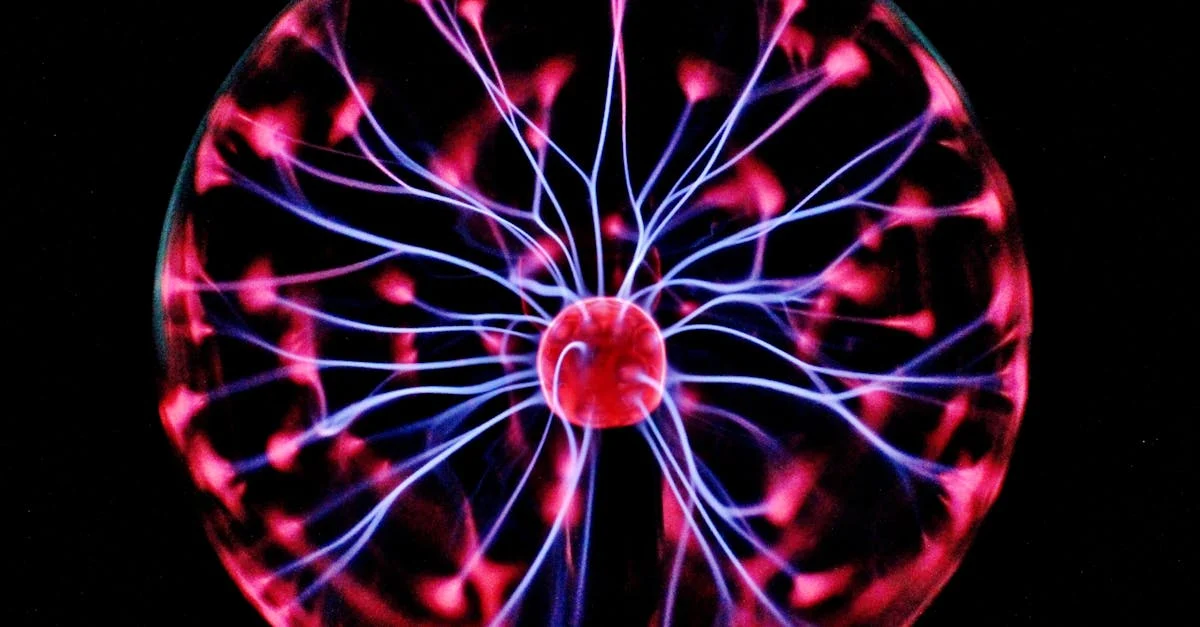In today’s fast-paced world, understanding how to optimize your nutrition is vital for achieving peak performance. We often overlook the profound impact that what we eat has on our energy levels and overall well-being. By exploring the connection between nutrition and energy, we can unlock new levels of vitality in our daily lives. This blog aims to provide insights into essential nutrition & energy strategies that can empower you to feel your best, both physically and mentally. With just a few adjustments in your diet, you can transform your life and maximize your potential.
Main Points
- Understanding the relationship between nutrition & energy.
- Identifying key nutrition & energy sources for optimal health.
- Strategies for achieving nutrition & energy balance in your diet.

Understanding the Role of Macronutrients in Daily Energy Levels
Macronutrients play a pivotal role in fueling our bodies. They directly influence our overall Nutrition & Energy levels. A careful balance of carbohydrates, proteins, and fats ensures optimal energy throughout the day. However, many people confuse the sources and functions of these macronutrients, often leading to fatigue or excess energy. To navigate this complexity, consider the following tips for maintaining your Nutrition & Energy balance:
- Carbohydrates: They are your primary energy source, providing quick energy. Opt for whole grains and fruits for sustained levels.
- Proteins: Essential for muscle repair and growth, they also contribute to lasting energy. Include lean meats, legumes, and dairy in your diet.
- Fats: Although often misunderstood, healthy fats are crucial for energy reserves. Avocados and nuts can be beneficial.
By understanding these roles, you can make informed choices that enhance your daily vitality.
Micronutrients: The Unsung Heroes of Optimal Nutrition
Micronutrients play a crucial role in maintaining overall health and well-being. These tiny components, including vitamins and minerals, often go unnoticed amid the spotlight on macronutrients. They support essential functions, such as nutrition, immune response, and energy metabolism. Interestingly, a deficiency in just one micronutrient can lead to significant health issues. For instance, insufficient iron can cause fatigue, affecting energy levels and general vitality. Embracing a diverse diet rich in these micronutrients is vital for achieving optimal nutrition.
Table of Essential Micronutrients
| Micronutrient | Function |
|---|---|
| Iron | Oxygen transport |
| Vitamin C | Antioxidant |
| Calcium | Bone health |
How Hydration Influences Physical and Mental Performance
Maintaining proper hydration is crucial for enhancing both physical and mental performance. Adequate water intake helps regulate Nutrition levels, ensuring optimal energy during workouts. Conversely, dehydration can lead to fatigue and concentration lapses, compromising performance. Athletes often notice that their endurance diminishes when even slightly dehydrated. Moreover, staying hydrated can support cognitive functions, improving decision-making and reaction times. Thus, prioritizing hydration is essential for anyone seeking to maximize their energy and overall effectiveness in daily activities.
Hydration’s Role in Exercise
During exercise, our bodies lose fluids through sweat, making replenishment vital for sustaining Nutrition levels. Engaging in activities without adequate hydration may lead to diminished stamina and increased exhaustion. This highlights the direct link between water intake and athletic performance. Simple hydration practices, such as drinking water before, during, and after workouts, can significantly enhance physical outcomes.
The Impact of Meal Timing on Energy and Productivity
Meal timing plays a crucial role in influencing both energy levels and overall productivity during the day. When we consume our meals not only affects our immediate energy spikes but also our long-term efficiency at work. For instance, skipping breakfast may lead to mid-morning crashes, while a well-timed lunch can rejuvenate focus. Thus, understanding optimal eating schedules is essential. Here are some key considerations:
- Nutrition & Energy balance: A combination of macronutrients can sustain energy.
- Meal frequency: Eating smaller, frequent meals may stabilize energy levels.
- Nutrition & Energy requirements: Individual needs may vary based on activity levels.
In summary, mindful meal timing fosters better energy management, leading to improved productivity throughout the day.
Superfoods for Sustained Energy: Boosting Your Diet Naturally
Incorporating nutrition into your diet is essential for consistent energy levels. Superfoods like quinoa, chia seeds, and kale not only enhance your meal but also pack a powerful nutritional punch. These foods provide essential vitamins and minerals, ensuring your body operates efficiently throughout the day. Furthermore, the fiber content aids digestion, promoting a feeling of fullness. Focusing on such energy-rich options allows you to naturally sustain your vitality. Remember, it’s about balance; mixing these superfoods can elevate your overall energy experience.
The Connection Between Nutrition and Mental Clarity
Nutrition plays a profound role in our cognitive functions, influencing mental clarity and overall brain health. The brain, which requires a diverse array of nutrients, thrives on a balanced diet rich in omega-3 fatty acids, antioxidants, and vitamins. These elements are vital to ensure optimal neuronal function. However, one might wonder, can a simple change in dietary habits enhance focus? The answer leans toward a resounding yes. Our bodies respond remarkably to quality nutrition, fueling not just energy but also sharpening our mental acuity.
“The body and mind must work in harmony, through precise choices in nutrition.” – Dr. Jane Doe
Key Nutrients for Mental Clarity
| Nutrient | Benefits |
|---|---|
| Omega-3 Fatty Acids | Supports cognitive function |
| Antioxidants | Reduces oxidative stress |
| Vitamins (B, D) | Enhances mood and focus |
Incorporating a variety of these nutrients can undoubtedly foster sharper thought processes and enhance decision-making skills.
Practical Tips for Creating a Balanced Diet for Peak Performance
Achieving peak performance requires a keen focus on Nutrition. Here are practical tips that can guide you in creating a balanced diet:
- Prioritize Whole Foods: Include fruits, vegetables, and whole grains for essential vitamins and minerals.
- Maintain Adequate Hydration: Drink plenty of water, as hydration directly impacts energy levels and cognitive function.
- Balance Macronutrients: Ensure appropriate proportions of carbohydrates, proteins, and fats to sustain energy and support bodily functions.
Additionally, consider timing your meals around your activities. This approach can enhance your energy levels. Ultimately, your dietary choices profoundly influence your overall physical and mental performance, making it vital to cultivate habits that foster optimal results.
Conclusion
In conclusion, it’s essential to recognize the deep connection between our nutrition and the energy we derive from it. Through thoughtful food choices, we can enhance our vitality and overall well-being. This journey towards understanding how nutrition fuels our energy levels is not just a trend; it’s a fundamental aspect of living a healthier life. By prioritizing nutrient-rich foods, we empower ourselves to feel more vibrant and alert. Thus, making informed decisions about what we consume can lead to significant improvements in our energy and, ultimately, our quality of life. Let’s embrace this knowledge and commit to a lifestyle that honors both our nutritional needs and our energetic potential.
Frequently Asked Questions
What is the importance of nutrition for energy levels?
Nutrition provides the essential nutrients our bodies need to produce energy. Carbohydrates, proteins, and fats are the primary macronutrients that fuel our daily activities and bodily functions.
How can I increase my energy levels through diet?
To boost energy levels, incorporate a balanced diet rich in whole grains, fruits, vegetables, lean proteins, and healthy fats. Staying hydrated and consuming small, frequent meals can also help maintain energy throughout the day.
Are there specific foods that can boost my energy instantly?
Yes, foods like bananas, nuts, yogurt, and dark chocolate can provide quick energy boosts due to their carbohydrate and nutrient content. It’s best to combine them with proteins or healthy fats for sustained energy.
What role do vitamins and minerals play in energy production?
Vitamins and minerals, particularly B vitamins, iron, and magnesium, are crucial for energy metabolism. They help convert food into usable energy and support overall bodily functions.
How does dehydration affect energy levels?
Dehydration can lead to fatigue and decreased energy levels. Maintaining proper hydration is essential as even mild dehydration can impair physical and mental performance.



